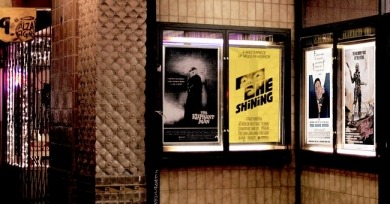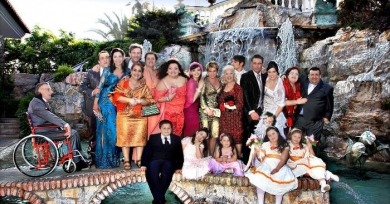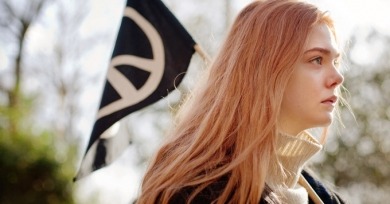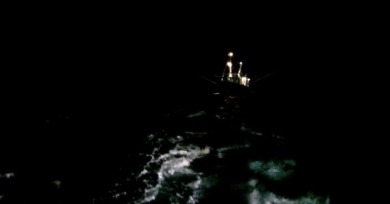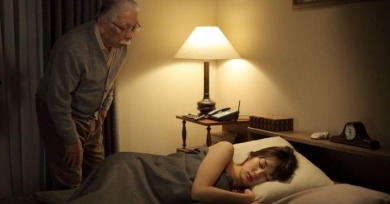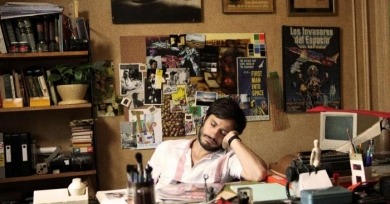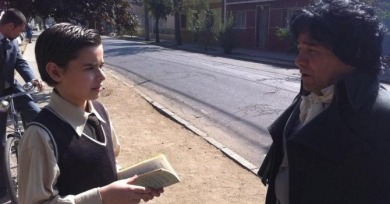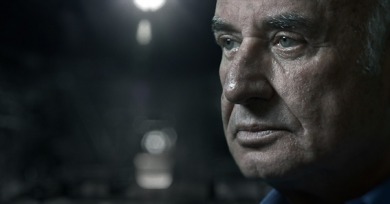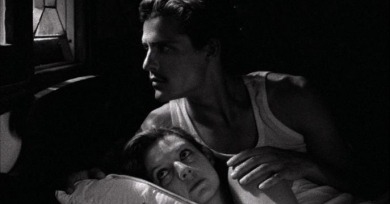Reviews
Few accusations can make a film critic bristle as much as the claim that they are “reading too much into” something, whether it be a scene, shot, or gesture. Nobody wants to seem in thrall to an overactive imagination.
There’s no evidence that Korine is aiming for irony with Spring Breakers—contemporary, media-driven culture is so self-reflexive that it’s hard to tell the difference between earnestness and satire anymore. That ambiguity of meaning fuels Korine’s film.
In the U.S., Reality might be too easy a sell. Have you ever watched the teary, mascara-stained faces on The Bachelor and mused about the possibility that these allegedly lovelorn contestants were somehow less than genuine?
Sally Potter’s Ginger and Rosa opens with an extended shot of an atomic explosion. This rippling detonation signals the host of dislocations that will affect the lives of the film’s not-yet-introduced protagonists over the course of the few months in early sixties London we’ll share with them.
Writer-director Cristian Mungiu presents us with both sides of a dilemma, and then with mounting evidence that it will be irresolvable. He has, in effect, made an austere realist suspense film, not unlike his celebrated previous feature, 4 Months, 3 Weeks and 2 Days.
Leviathan is almost entirely disinterested in the naturalistic or anthropological, neither a landscape (or even seascape) documentary, nor an insight into labor and social relations. Instead, Leviathan offers an image of the world as almost something alien.
Kiarostami’s films are imbued with a rare emotional lucidity, and yet they still steadfastly undermine the traditional dynamic of film acting, so that any outward show of emotion is first a representation of that emotion before it can be received as an expression of it.
The key to Larraín’s effectiveness thus far has been his ability to strategically, and from different angles, analyze issues surrounding the political stain the dictator left on Chile.
Night Across the Street is stitched together from a handful of tales by the Chilean author Hernán del Solar. As if to indicate just how much time he spent in made-up worlds, or maybe just for the sake of pulling off yet another act of sleight-of-hand, Ruiz gives us his autobiography in the form of an adaptation.
Mainstays of the Italian cinema scene since their high-school-age encounter with Rossellini’s Paisan inspired their first creative twitchings, sibling filmmakers Paolo and Vittorio Taviani, now in their eighties, are still plying their trade with admirable tenacity.
The power of Moreh’s film lies not in its subjects’ contrition, but in their collective cynicism, their shared sense of futility.
Dumont may have no concrete answers for the questions he poses. But as an artist ever preoccupied with the unearthly, despite or perhaps because of his professed atheism, he often allows some idea of God to seep in.
The problem with Zero Dark Thirty becomes less that it ends up making a forceful case for the efficacy of torturing human beings for national security—it’s that one can easily walk away from the film doubting whether Bigelow and Boal have even realized that this is what they’ve done.
Portuguese filmmaker Miguel Gomes, working on the opposite side of the world, uses the cinematic apparatus to capture, refract or simply conjure out of nothing portions of the fabulous magic lurking at the seams of mundane existence.
